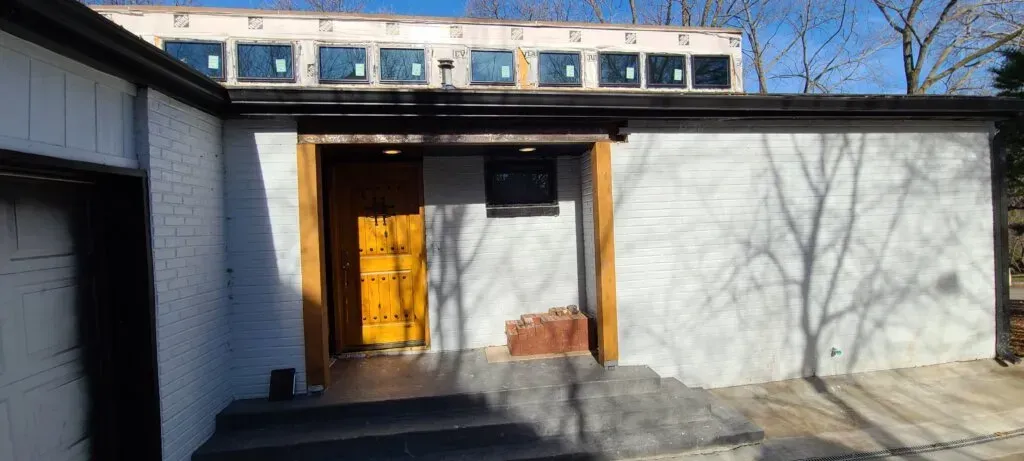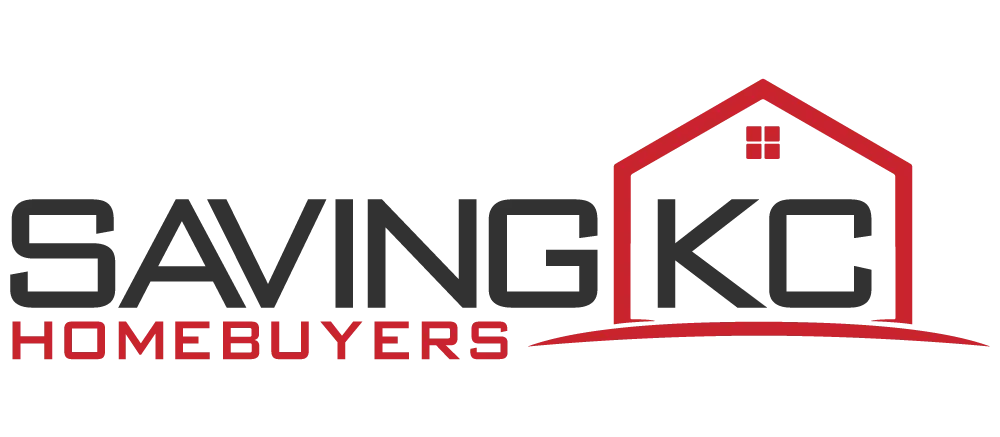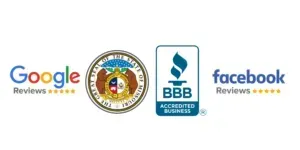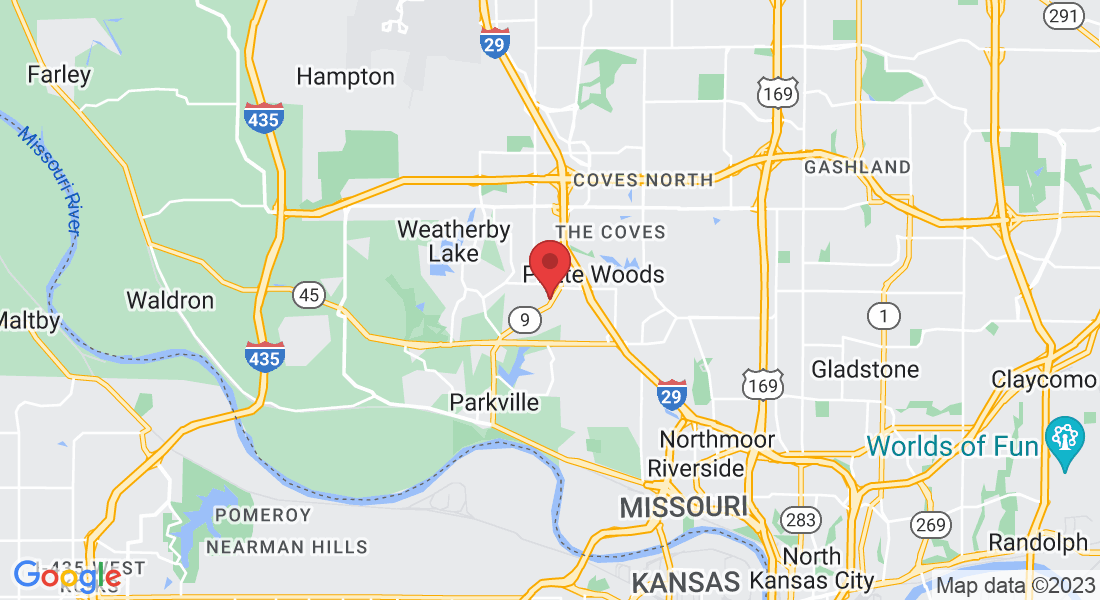
Cash Offer For My House In Kansas City
Financing Options for Homebuyers in Kansas City: What You Need to Know
Buying a home is a major milestone that most people will only experience once or twice in their lifetimes. This should be a time of joy and excitement, as you embark on a journey toward building equity and securing your future. But all too often, fears around financing can overshadow the excitement.
If you’re looking to purchase a home in the Kansas City area, you have a number of options when it comes to financing. From home loans and grants to adjustable-rate mortgages and more, it can be overwhelming to navigate the complexities of different financing methods. To help you out, we put together this comprehensive guide to financing options for homebuyers in Kansas City. Ready to get started? Let’s go!
Quick Breakdown
There are many financing options available when buying a house in Kansas City such as conventional mortgages, FHA loans, VA loans, and USDA loans. You should speak with a qualified mortgage specialist to discuss which loan product would be best suited for your individual needs.
Mortgage Financing Options for Buying a House in Kansas City
Mortgage financing is arguably one of the most important aspects in buying a house. With the help of a professional lender, homebuyers in Kansas City have access to various mortgage programs with different features and requirements. First-time homebuyers should look for a loan program that provides low down payments, low-interest rates, and flexible repayment terms.
For those who are looking for lower monthly payment options, FHA loans are a popular option because they usually require lower down payments and have lower debt-to-income ratios than conventional loans. In addition, VA loans can provide additional benefits to veterans and active duty military members in offering 100% financing or lower interest rates. On the other hand, those with stronger finances may be eligible for more competitive conventional loans which can offer advantages such as no PMI (Private Mortgage Insurance) or higher loan limits but require high credit scores and down payments.
Ultimately, it is important to do research into all available options and speak with several lenders to make sure that you get the right loan type suited to your financial situation. The type of loan you take out will determine how much of your hard earned money is locked into a mortgage, so it’s important to seek counsel before making a decision.
Now that we have discussed mortgage financing options for buying a house in Kansas City, let’s explore what requirements and prepping your finances entail before diving into the world of home ownership.
Essential Summary Points
When looking for mortgage financing to buy a house in Kansas City, there are various factors that homebuyers should consider. First-time buyers should look for loan programs that provide low down payments, low-interest rates, and flexible repayment terms. FHA loans and VA loans are popular options due to the lower down payments and debt-to-income ratios. Conventional loans can offer advantages such as no PMI or higher loan limits but require high credit scores and down payments. It’s important to research all options and speak with several lenders before making a decision in order to get the right loan type suited to your financial situation. Additionally, potential homebuyers must have the necessary requirements and prepped finances before going into the world of home ownership.
Requirements and Prepping Your Finances
When purchasing a home, prepping your finances is an essential step in the home buying process that can make all the difference when it comes to qualifying for financing and obtaining favorable terms. Buyers must consider their budget carefully, establish a savings plan, determine how much they are able to put down, and review their credit score to identify any potential issues prior to applying for a loan.
There is no one-size-fits-all solution for prepping your finances and each buyer’s situation is unique, however, there are some general steps that can be taken to help ensure success. Budgeting is an important first step amid the excitement of searching for a new home. Knowing how much you can afford each month and having this information confirmed by a lender will avoid any pitfalls later if you qualify for more than initially anticipated. Establishing a savings plan devoted solely toward the purchase of a home is also essential as most lenders will require at least 3.5% of the purchase price as a down payment with higher amounts for certain loans. Another way buyers can proactively prepare their finances is by addressing any red flags or potential items of concern such as collections or unpaid bills on their credit report prior to speaking with a loan officer.
Once all financial tasks have been completed from saving money to reviewing credit reports, potential homebuyers should be in good shape when it comes time to move on to the next step in the process where we will look at credit score and specific down payment requirements for Kansas City buyers.
Credit Score and Down Payment Requirements
When it comes to financing options for homebuyers in Kansas City, the credit score and down payment requirements are two important factors potential homeowners should consider. Generally, lenders prefer a credit score of 750 or higher in order to qualify for the best rates and terms. This can be difficult to achieve with no or limited credit history. Additionally, the amount of the down payment required when buying a home usually depends on the type of loan the homebuyer chooses; the average is around 20%. Some lenders may require more and some may require less depending on various lending criteria including an individual’s credit score.
It is important to note that having a lower credit score or just needing a small loan does not automatically disqualify someone from getting a mortgage as there are various loan programs available with reduced requirements, such as government-backed FHA loans which allow homebuyers with scores as low as 500 to purchase a house with a 3.5% down payment. Furthermore, buyers who are eligible for VA or USDA loans may receive 100% financing or no money down at all. On the other hand, many conventional loans require at least 3% of the total cost of the home upfront and buyers with higher credit scores may be eligible for as little as 0% down depending on their finances and lenders’ requirements.
Regardless of which option buyers choose, they must have sufficient funds to cover closing costs. In any case, completing careful research and helping potential buyers budget ahead of time will make sure they are prepared for whatever comes their way during the homebuying process.
In order to successfully finance a home purchase in Kansas City, understanding affordability and budgeting is paramount. This requires potential homeowners to examine income versus debt ratio calculations along with understanding all fees associated with closing costs prior to applying for any loan programs. The following section will focus on understanding affordability and budgeting when it comes to financing options for homebuyers in Kansas City.
Understanding Affordability and Budgeting
Before beginning the homebuying journey in Kansas City, it is essential for potential buyers to understand affordability and budgeting. Knowing what is affordable and creating a budget before shopping for a house can save buyers time and money in the long run.
Affordability is determined by two factors: (1) available cash and (2) income. A lack of either asset can make buying a home in Kansas City difficult, especially if lenders do not accept unconventional methods of verifying income. Buyers should also be aware that lenders typically consider other debts when determining loan eligibility, including car loans and student loan debt. With these additional monthly costs factored in, buyers may need to lower their expectations or find additional ways to increase their cash flow before applying for a mortgage loan.
Budgeting is a key part of understanding affordability and can save buyers from being stuck with a house they cannot afford during or after the buying process. After determining how much cash buyers have to use for down payments and closing costs, factoring in estimated monthly costs of homeownership, such as mortgage payments, taxes, insurance, utilities, and maintenance will help potential buyers better determine what size loan they can qualify for and what type of house they anticipate purchasing. Estimates of these costs should also include potential repairs on older homes as well as any private mortgage insurance (PMI) that may be required.
Budgeting isn’t limited to just monthly payments and home repairs; preparing for unexpected expenses, such as job loss or family emergencies, can help with financial stability during homeownership. Taking all of these considerations into account before making an offer on a house can help prevent buyers from present-day assets like retirement funds or future assets like college savings plans to pay their mortgages.
By understanding affordability and budgeting requirements before beginning the homebuying journey in Kansas City, buyers can confidently prepare themselves for the process ahead. The next step is learning about the different mortgage loans and loan rates available in this region.
Different Mortgage Loans and Loan Rates in Kansas City
When it comes to mortgage loans and loan rates in Kansas City, it is important to do your research and understand the different types of loans that are available. Knowing the differences between them can help you make a decision about what is best for you.
Fixed Rate Loans are the most common type of mortgage loans. They have a fixed interest rate for the life of the loan, so no matter what happens to the market, your payment stays the same. The main advantage of this is predictability and security for homeowners. On the downside, if the interest rate does drop, you may miss out on potential savings by being stuck in a higher-than-average loan rate.
Adjustable Rate Mortgages (ARMs) adjust with the market based on predetermined index levels. This can pose some risks as rates could increase or decrease depending on market movement. However, they offer generally lower initial rates than fixed-rate loans and usually require less upfront closing costs.
It is important to consider all options when shopping for a loan, especially considering there are minimum loan amount restrictions that vary by location in Kansas City. While researching, don’t forget to look into First-Time Homebuyer programs which may provide special benefits such as down payment assistance or tax credits for qualified buyers.
Regardless of which loan fits your needs best, it is important to understand all disclosure information from lenders before signing any documents or agreements.. It pays to shop around – several lenders in Kansas City will offer different rates and terms on their loans so be sure to compare them carefully before deciding which one is right for you.
Now that you have an understanding of different mortgage loans and loan rates in Kansas City, let us move on to Government Loan Options and Other Affordable Home Loan Options.
Government Loan Options and Other Affordable Home Loan Options
When it comes to financing a home, there are a variety of loan options for homebuyers in Kansas City. Government loan options and other affordable home loan options can provide an opportunity to get into the market.
Government loans such as FHA loans and VA loans are available to those who qualify and are a popular option amongst first-time buyers. FHA loans feature 3.5% down payments and competitive interest rates, while VA loans offer up to 100% financing, so no down payment is needed. On the downside, these government loan options also come with higher fees than traditional mortgages, making them more expensive in the long run.
In addition to government loan options, there are numerous affordable home loan options available including USDA loans, conventional mortgages, and adjustable rate mortgages (ARMs). USDA loans often require zero down payment but carry restrictions based on income level or location. Conventional mortgages may require a slightly higher downpayment but can still be quite affordable with competitive interest rates. Lastly, adjustable rate mortgages (ARMs) are typically best for borrowers who don’t plan on living in their home for more than 5-7 years since interest rates can increase over time. While ARMs can offer lower upfront costs, an unnecessary risk with potentially higher interest rates can come along with them.
With government loan options such as FHA and VA loans along with other affordable home loan options like USDA loans and ARMs, homebuyers have plenty of choices when it comes to buying their next house. However, it’s important to weigh the pros and cons of each option before making a payment decision in order to find the right one that works best for each individual buyer’s needs and budget.
Now that you’ve become familiar with the financing options available in Kansas City let’s take a look at some of the final considerations homeowners should bear in mind such as insurance, closing costs , and investment considerations when looking to buy a new home.
According to Realtor.com, the median home price in Kansas City is $185,000.
A popular financing option in Kansas City is the FHA loan. This type of loan requires only a 3.5% down payment and buyers can qualify with credit scores as low as 600.
Another popular financing option is a VA loan, which is available to eligible members of the military and veterans. These loans require no down payment, so they are an attractive choice for many first-time buyers in Kansas City.
Final Considerations: Insurance, Closing Costs, and Investment Considerations
It’s even more important to consider the other costs associated with purchasing a home. Insurance, closing costs, and investment considerations are all important to examine. When it comes to insurance coverage for a new home purchase, there are three main types of coverage to consider: homeowner’s insurance, private mortgage insurance (PMI), and title insurance. Homeowner’s insurance is required by many lenders and covers losses such as fire or theft of property. PMI is a form of insurance that protects lenders in case the borrower defaults on their loan. Title insurance is an additional type of coverage that protects the buyer in case there are any issues with property rights. An experienced real estate agent can provide more information about what type of coverage is required when buying a home.
Closing costs refer to the various fees associated with purchasing a home and can include items such as loan origination fees, appraisal fees, attorney’s fees, survey charges, and transfer taxes. While these costs vary from state to state, they typically range from two to five percent of the purchase price of the home. It’s important to factor these additional costs into your budget when researching financing options for your home purchase.
When it comes to investment considerations, it is important to think long-term and consider whether owning a home could be part of your investment portfolio. Buying a house often results in increases in property values over time due to market forces such as inflation or local developments that add value to the area. As an owner, you may be able to rent out the property or eventually sell at a profit if prices rise over time. Of course, there are also risks involved with investing in real estate, including fluctuations in market prices which could result in losses for homeowners who purchased during peak periods.
Finally, it’s important to evaluate all financing options carefully before making a decision so you can make the most informed decision for your budget and lifestyle needs. With this in mind, let’s now move forward and examine different strategies for finding the best financing option for you in our next section: Conclusion: Finding the Best Financing Option for You.
Conclusion: Finding the Best Financing Option for You
Finding a financing option that best suits your home buying needs can sometimes be a difficult task. It is important to pay close attention to the various details of each type of financing, such as terms, interest rates, and any associated fees. To ensure you make the best decision for your situation when it comes to financing your new home, there are several key points that should be considered before making any commitments.
First, understand your creditworthiness and review your credit report beforehand so you know what loan programs you can qualify for. Consider what type of loan will work best for you. Some may prefer a fixed-rate mortgage because they can plan with confidence knowing their payments won’t increase over time. Others may want an adjustable rate mortgage because they only plan on staying in the home for a few years and would prefer initially paying lower interest rates.
It is also important to compare different lenders who offer the same type of loan program in order to determine if there are any differences between them in terms of fees, interest rates, and other costs associated with getting a loan. Talk to friends and family who have recently purchased homes and ask them about their experiences in securing financing. Finally, don’t forget to consider all available financing options before making a decision – not just traditional mortgages from banks or credit unions; other options such as government loans from the Federal Housing Administration (FHA) and the United States Department of Agriculture (USDA) could also be beneficial depending on your circumstances.
Ultimately, the most important factor when selecting the best financing option for a home purchase is finding a program that meets both your short-term and long-term needs – in terms of lending criteria, repayment flexibility, and affordability – while still making sure you are financially secure going into the future. By thoroughly researching all of the options available to you and consulting with experts, you can make an informed decision that ensures you find the right loan program for your homeownership goals.
Answers to Commonly Asked Questions
Are there any special financing programs available specifically for buying a house in Kansas City?
Yes, there are several special programs available for buying a house in Kansas City. The Missouri Housing Development Commission (MHDC) provides homebuyers with access to mortgage credit certificates (MCCs), which can provide up to 20% of the mortgage interest rate as a tax credit on their federal income taxes. Additionally, MHDC offers loan programs with reduced closing costs and down payment requirements. They also provide housing counseling services to help potential homebuyers understand their options and make an informed decision about buying a house in Kansas City. Finally, the city also has first-time homebuyer assistance programs specifically for those who qualify. These may include grants, deferred loans, and other options that can make purchasing a home more accessible for low-income residents.
What mortgage lenders in Kansas City offer the best rates and terms?
In Kansas City, there are a variety of lenders that offer competitive rates and terms. Popular choices include Commerce Bank, Country Club Bank, First Federal Bank of Kansas City, UMB Bank, and US Bank. Each lender has their own unique rates and terms tailored to different customer needs. For example, Commerce Bank offers competitive fixed-rate mortgages with low closing costs and flexible repayment plans. Country Club Bank offers some of the lowest rates on home loans with fast pre-qualification options. First Federal Bank of Kansas City has competitive interest rates with streamlined online loan applications and a variety of financing solutions for specialized lending needs. UMB Bank is known for their excellent customer service and comprehensive mortgage loan packages that are among the most competitive in the market. Finally, US Bank offers competitive interest rates on fixed-rate mortgages along with flexible programs designed to fit nearly any budget or credit score.
No matter which lender you choose, it’s important to review all of your options carefully to ensure you find the best rate and terms for your specific needs.
What are the pros and cons of each financing option available for buying a house in Kansas City?
The pros and cons of the various financing options available for buying a house in Kansas City depend largely on the individual’s specific needs and circumstances.
Mortgage: The most common option for homebuyers is a traditional mortgage, which typically requires good credit and the ability to make a down payment of at least 5%. The primary pro of this option is that it keeps borrowing costs low—for borrowers with good credit, mortgages often offer some of the lowest interest rates available. The con is that mortgages can have fairly rigorous qualification guidelines, making them inaccessible to those with poor credit or limited savings.
VA Loan: For veterans and active military personnel, a VA loan may be an attractive financing option because these loans are backed by the government, meaning they don’t require mortgage insurance or a down payment. They also tend to come with lower interest rates than conventional mortgage loans. However, there are limits on how much home one can purchase with a VA loan—the maximum amount varies based on location and other factors—so it may not be an appropriate choice for buyers who want to purchase a higher-priced home.
FHA Loan: An FHA loan offers many of the same benefits as a VA loan with slightly less stringent qualifications requirements; it’s backed by the government but typically requires smaller down payments than conventional loans. The primary pro here is that FHA loans often allow homebuyers with lower credit scores to still qualify for competitive interest rates and terms. One downside is that mortgage insurance fees are required when taking out an FHA loan, which can raise monthly costs.
Home Equity Loan: If you already own your home and need access to additional funds, then a home equity loan may be worth considering. With this type of financing, you can borrow against the value of your current home; you must have adequate equity developed in order to qualify. Home equity loans tend to have lower interest rates than other loan types, making them an attractive option for those with sufficient equity looking to finance major projects or expenses without taking on high-interest debt.
Cash: Although it isn’t technically a loan option per se, paying cash for your home can yield certain advantages over taking out financing from a lender. Those who are fortunate enough to have money in savings can avoid paying interest charges throughout the life of their mortgage, potentially saving thousands over time. However, not everyone has enough cash saved up to purchase a house outright; plus, there can be unforeseen repairs or upgrades that need to be taken care of after closing, meaning cash buyers may still need access to additional funds.
Get A Cash Offer Today Contact Us How It Works FAQ Our Company Resources Privacy Policy Blog
Find Us On The Web
We are investors and problem solvers who can buy your house fast with a fair all-cash offer. Edison Pine & Associates LLC doing business as Saving KC Homebuyers.
Saving KC Homebuyers
7021 NW Winter Ave | Kansas City, MO 64152 | (816) 429-2900 | support@savingkc.com
© 2023 Saving KC Homebuyers - Powered by Carrot


